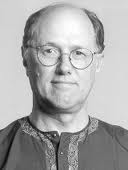Years ago, I recall seeing a bumper sticker which asked, “Can you live without farmers?” We all know the answer to that question is “No,” but rarely do we consider how dependent we are on farm owners and those who labor in the fields to bring us our food. To often we take them for granted, and not just farmers and farm workers, but also truck drivers, grocery store employees and other heroes who are on the job every day to deliver us our “daily bread.”
In addition to those who maintain our food supply chain, we can’t live without nurses, medical assistants, pharmacists, and all the individuals who work within our healthcare system. And let’s not forget sanitary workers and those who recycle our trash, and community first responders, police, firefighters, the National Guard, as well as our schoolteachers who have had to suddenly adapt to the online classroom. The list of underpaid, frequently overlooked professions is long. Our battle against the coronavirus (COVID-19) reminds us that the “last” in our society should be “first,” to paraphrase a well-known gospel verse (Matt. 19:30).
The inequality in our healthcare system has been glaringly exposed as Hispanics and African-Americans are dying in disproportionately higher numbers due to COVID-19. Massive job losses, long lines at food pantries, the need for medical supplies and expanded testing have created the worst socio-economic crisis since the Great Depression. As a result, universal basic income (UBI) and universal healthcare are becoming an integral part of the political conversation.
In addition, we are seeing renewed interest in what has been called the Gaia Hypothesis. Named for the primal Greek goddess of the earth, the Gaia Hypothesis views the earth biosphere, not as a piece of property created for human consumption, but as a complex self-regulating organism. Like other living systems, it has it’s own adaptive evolutionary mechanisms to help maintain stability and ensure its survival when threatened.
In just three months after the coronavirus began its march across our planet, air quality in polluted cities like Rome, New Delhi and San Francisco has improved dramatically. Sea turtles and other threatened species have started to rebound. With more than 16,000 passengers jets grounded and far fewer cars on the road, humanity’s carbon footprint is now much lighter.
These and other environmental changes are providing an unprecedented opportunity to institute green initiatives and real socio-political, economic reform. The most invasive species on our plant, the human species, has been forced to retreat from its exploitive, capitalist, fossil fuel-driven economy. Mother Nature is reasserting her authority, stepping in on a powerful molecular level to curb our planetary abuse, and reminding us that we are not the ones in control.
What will life be like in a post-coronavirus world? Let’s hope we never return to normal, but instead build a more compassionate, equitable and sustainable world.
George Wolfe is Professor Emeritus and former Director of the Ball State University Center for Peace and Conflict Studies. He was the 2018 Green Party candidate for Secretary of State in Indiana, and has served as Chair of the Indiana Green Party. He is also a trained mediator and the author of The Spiritual Power of Nonviolence: Interfaith Understanding for a Future Without War.



